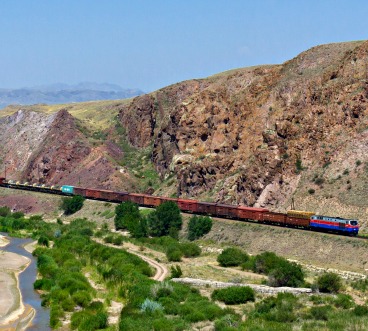Mr. President, I am pleased to report to you and my colleagues on the excellent work that is being done to help developing countries capitalize on their natural resource wealth. This unique initiative is called the Natural Resource Charter, and it is designed to give countries the tools and knowledge they need to develop their natural resources for the good of their citizens in a transparent and accountable manner. As a collective work coordinated by established academics and development experts, the charter provides a set of policy principles for governments on the successful translation of natural resource wealth into fair and sustainable development.
At the U.S. Helsinki Commission we monitor 56 countries, including the United States, with the mandate to ensure compliance to commitments made under the Helsinki Final Act with focus on three dimensions: security, economics and the environment, and human rights.
The management of extractive industries has broad implications covering all three dimensions of the Helsinki process. We know that oil, gas, and mining are potential sources of conflict and their supply has a direct impact on our national security. The often negative economic consequences for resource rich countries are well documented and we see constant reminders of the environmental impact of extraction both at home and abroad. Finally, the resultant degradation of human rights in countries that are corrupted by resource wealth is a real concern that we must address.
When the charter was launched last year, I was struck by how far we have come in terms of bringing the difficult conversation on extractive industries into the lexicon of world leaders. Only a few short years ago, the word “transparency” was not used in the same sentence with oil, gas or mining revenue. After the launch of the Extractive Industries Transparency Initiative in 2002, we have seen a major shift in attitude. This was followed by G8 and G20 statements in support of greater revenue transparency as a means of achieving greater economic growth in developing countries.
But it is clear that given the challenge ahead, more than statements are needed. The Natural Resource Charter is a concrete and practical next step in the right direction.
Economists have found that many of the resource-rich countries of the world today have fared notably worse than their neighbors economically and politically, despite the positive opportunities granted by resource wealth. The misuse of extractive industry revenues has often mitigated the benefits of such mineral wealth for citizens of developing nations; in many cases the resources acting instead as a source of severe economic and social instability.
In addressing the factors and providing solutions for such difficulties, the Natural Resource Charter aims to be a global public resource for informed, transparent decision-making regarding extractive industry management.
The charter’s overarching philosophy is that development of natural resources should be designed to secure maximum benefit for the citizens of the host country. To this end, its dialogue includes a special focus on the role of informed public oversight through transparency measures such as EITI in establishing the legitimacy of resource decisions and attracting foreign investment. On fiscal issues, the charter presents guidelines for the systematic reinvestment of resource revenues in national infrastructure and human capital with the goal of diminishing effects of resource price volatility and ensuring long-term economic growth.
This week the commission will hold a public briefing on the Natural Resource Charter and I am pleased to say that there was a candid conversation between the audience and the panel that revealed much about how the charter could be used to promote human rights and good governance. The briefing also addressed ways that U.S. support of democratic and economically sensible extractive industry standards could have a powerful effect in securing the welfare and freedoms of citizens in resource-rich countries. In particular, it was noted that the Energy Security Through Transparency Act, S. 1700, a bipartisan bill I introduced with my colleague Senator Lugar and 10 other colleagues is consistent with the principles set out in the Natural Resource Charter.
I look forward to working with my colleagues to ensure our continued progress on these issues.






